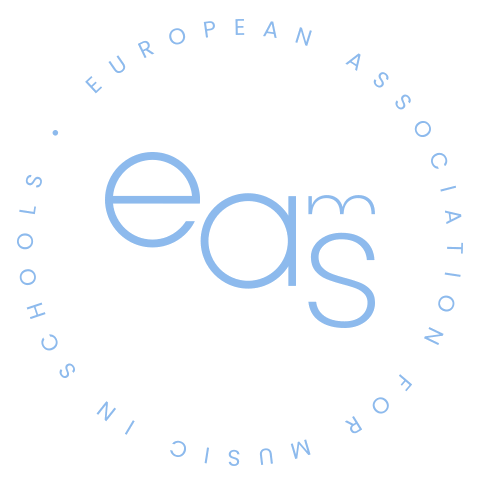Conference Agenda
Overview and details of the sessions of this conference. Please select a date or location to show only sessions at that day or location. Please select a single session for detailed view (with abstracts and downloads if available).
|
Session Overview |
| Session | ||
Papers - Curriculum and Professional Development
| ||
| Presentations | ||
Strategic Informalism in Music Education: Cultivating Democratic Spaces for Learning European University Cyprus, Cyprus In this study, I, as the instructor-researcher, employed an approach I developed called the Strategic Informal Approach (SIA). This pedagogical framework is rooted in constructivist and constructionist theories and designed to promote democratic, collaborative learning in music education. Influenced by Dewey’s (1938) concept of learning as a "co-operative enterprise," Vygotsky’s (1976) theory on social learning, and Mitchel Resnick’s (2017) “Creative Learning Spiral,”SIA emphasizes creating shared, democratic spaces in education to foster critical thinking and social interaction through music. The primary objective of this research is to explore how SIA nurtures a cooperative and reflective environment for music-making among early childhood preservice teachers, enhancing both pedagogical skills and self-awareness. By blending structured teaching with informal, student-led group improvisations, SIA balances teacher guidance with student agency, enabling both groups to co-create meaningful learning experiences. This qualitative research, conducted in 2022 as part of a dissertation study, involved 13 early childhood preservice teachers. Employing a Design-based Research (DbR) methodology, the study collected rich data on participant experiences through observations, reflective journals, interviews, a questionnaire, and artifacts. The study adhered to a five-step iterative process integral to the SIA framework: imagine, create, play, share, and reflect. Results reveal that collaborative interactions within this framework enhance participants' musical skills, pedagogical understanding, and self-reflection. Aligned with Dewey’s advocacy for shared learning, this approach fostered ownership and empowerment among participants, encouraging authentic responses to musical tasks through peer-to-peer engagement. SIA presents a flexible, democratic model supporting preservice teachers in embodying and modeling democratic teaching practices. Through democratic and creative methods, SIA inspires future educators to cultivate democracy, creativity, and inclusivity in their teaching. This study contributes to music education by emphasizing experiential learning and pedagogical innovation as key elements in creating inclusive, engaged learning environments across diverse educational contexts. Unlocking music teachers' narratives on pedagogical improvisation. LUCA School of Arts, Belgium Music teaching requires engaging with learners in a collaborative journey of music playing. For active learning to emerge, lessons cannot be entirely pre-planned. Although few studies have explored ‘pedagogical improvisation’ (PI) in music education (e.g., Espeland & Stige, 2021), they consistently show that improvisation is essential to music teachers’ daily practice. This study focuses on the musical competences involved in PI, as teachers’ artistry and musicianship are critical to how music learning unfolds in the classroom. Drawing on Sawyer’s (2011) concept of disciplined improvisation—where structured lesson elements are balanced with spontaneous adaptivity—the research explores how experienced music theory teachers conceptualise and enact PI. (Results, expected in April 2025, will inform follow-up research on educating student music teachers in the ‘art’ of PI.) Using purposive and convenience sampling, nine music theory teachers with a minimum of five years’ experience in music schools were recruited. One lesson per teacher was videotaped, involving either minor or adult students. Information letters and informed consent forms were sent to both the teachers and the students (or their parents), all of whom signed them. Immediately after the lesson, teachers completed questionnaires on Teacher Agency and lesson flow. Video-stimulated recall interviews with the teachers were conducted based on selected fragments featuring presumed improvised interactions. The teachers’ narratives of those experiences were transcribed and analysed. This study has been reviewed and approved by the Social and Societal Ethics Committee (SMEC) of KU Leuven (G-2024-7718). Espeland, Å., & Stige, B. (2021). Teaching repertoires and pedagogical improvisation in music teacher practices. British Journal of Music Education, 38(3), 207–218. https://doi.org/10.1017/S0265051720000376 Sawyer, R. K. (2011). What Makes Good Teachers Great?: The Artful Balance of Structure and Improvisation. In R. K. Sawyer (Ed.), Structure and Improvisation in Creative Teaching (1st ed., pp. 1–24). Cambridge University Press. https://doi.org/10.1017/CBO9780511997105.002 Finding our voice: Dialogic feedback in a pre-service music teacher placement 1National and Kapodistrian University of Athens, Greece; 218th Secondary School of Athens, Greece Part of a wider incentive to encourage stronger collaborations and strengthen student-centred learning within one Southern European HEI, this study aims to investigate the ways in which feedback processes may operate dialogically during school music teaching placements. Feedback processes are currently under-researched in initial teacher education placements in the European context, yet they yield immense value for the student-teacher. For example, socio-constructivist conceptions of feedback may break down one-directional and linear forms of knowledge transmission, thereby highlighting the participatory role and self-regulation of the learner (Blackwell et al., 2022). Such cyclical processes enhance the ST’s own feedback literacy, by engaging in dialogue as an active partner rather than passive recipient (Winstone et al., 2021). In 2023-4, a music teacher and university music educator - initiated a qualitative inquiry into mentoring pre-service music teachers during their 3-week school placements. One data strand collected, analysed thematically audio-recorded discussions on lesson planning and post-lesson reflection using the qualitative data analysis software NVivo. A second iteration of the study in Spring 2025 will additionally gather ST experiences of feedback processes during their placements, currently an under-researched focus in music education (Blackwell et al., 2022). Findings highlight the learning possibilities that conceptualising feedback-as-dialogue within a socio-constructivist framework holds for both ST and MT. They not only shed light on the ways STs conceptualise, negotiate and act upon the feedback provided, drawing on a range of sources from the contexts they experience during their placement; they highlight also the socialisation of STs, regarding “extra-musical”, non-teaching realities of the job (Bartolome, 2017). The MT additionally perceives the feedback situation as a learning opportunity, a form of professional development whereby new and innovative strategies are foregrounded. Strengthening ST and MT voices in initial teacher education seems urgent. Implications arising from the study and future actions are critically discussed. | ||
